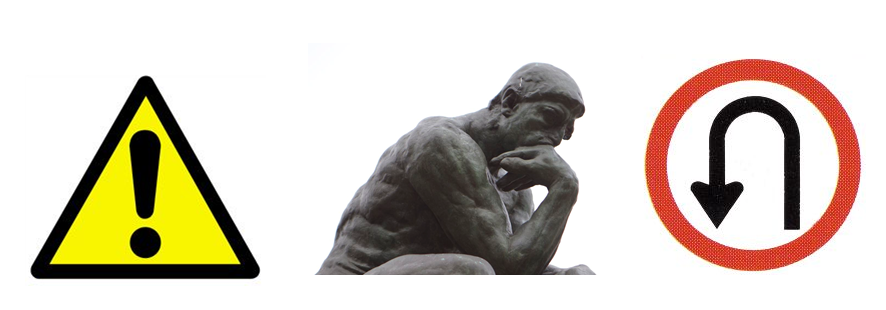|
To any sentient being, I think the most important thing is to doubt yourself. No matter how sure you are of yourself, you must always bear in mind that you can be wrong. In fact, you have been wrong on many (most?) occasions, and you will be wrong for many times to come. This is a serious and crucial realization, because most of our actions arise from our conscious and unconscious beliefs. Our horizons are bounded. The thoughts and opinions we can have are limited by our cultural experience (e.g. socially accepted norms). Our confidence in our beliefs is bolstered by the fact that we can only operate inside our tiny little box, which makes everything in the box so familiar and comfy and, you know, "obviously true". However, to make good decisions in life, we must accumulate much "experience" to guide us. That "data" comes in the form of a diverse array of opinions and beliefs, which may not agree with each other. We must expand our shoebox of a mind to a warehouse of different perspectives which allow us to appreciate things and happenings more completely. This will aid our decision-making process by allowing us to evaluate the consequences of choices more accurately. Hence, to grow as a person, we should:
Now for a disclaimer in the spirit of the above: I think this is a good approach, but it is likely that I have missed out lots of stuff, which occurs when I try to make ad-hoc lists of stuff. It is even possible that my assumptions were wrong, and these ideas I have presented need a major reshaping. Of course, if you can improve this, please let me know. I would be most interested in listening to voices from outside my shoebox. Or I think I am... perhaps I am more closed-minded than I think... yeah, that probably is true. Then again, these ideas are common among my circle of friends, so could this be a case of group-think? Act, even if you doubt.A friend warned me not to "take this idea to the extreme and lose conviction in what you believe" because "an excess of self-doubt can paralyze you and prevent any effective action." What's important is "finding a balance between having a healthy dose of self-doubt and having enough conviction to actually do/say/write stuff." I agree, and thankfully I do have the self-confidence to voice out my own opinions even if they contradict those of others. As they say, "take everything with moderation." Hmm, perhaps this is an extreme position, and that there are some things that should not be taken with moderation? Reminds me of that joke: "Only the Sith deal with absolutes." Debug your thoughtAn excellent model of self-doubt is computer programming - more specifically, debugging. We write programs expecting them to work, and nearly always they don't. The bugs often appear in places we least expect, and the longer a bug takes to be found, the more trivial it probably is.
This shows how easy it is to be sure of what we are doing, only to find out, when pitted against the truth of the world, the countless factors (even seemingly obvious ones) we have neglected in our decisions. Unfortunately, real world decisions are rarely pitted against the truth until a stage where things really matter and consequences can no longer be avoided. (I was initially excited about the potential of programming for training self-doubt, but a friend countered that even programmers usually compartmentalize their thoughts, possibly leading to healthy self-doubt in programming but a lack of it in real life.)
0 Comments
Leave a Reply. |
Archives
December 2020
Categories
All
|

 RSS Feed
RSS Feed